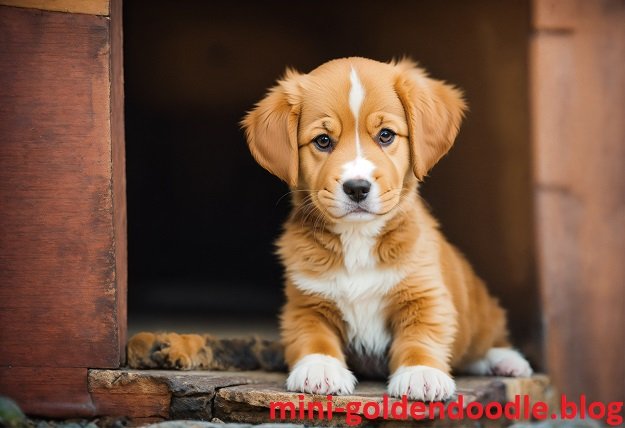Introduction
A new puppy is a joy to welcome into the family; there will be playtime, cuddling, and surprises along the road. The appearance of hiccups in their furry friends is one such surprise that could worry new puppy parents. Even while puppy hiccups are usually harmless, knowing why they happen, how to treat them, and when they could be a sign of a more serious problem will help allay fears and guarantee your puppy stays happy and healthy.
What Are Puppy Hiccups?
Puppy hiccups are caused by uncontrollably contracting the diaphragm, which is the breathing muscle. The ‘hic’ sound is produced when the diaphragm contracts suddenly, causing a brief intake of breath that is stopped by the vocal cords closing. Because of their developing neurological systems, pups frequently experience these hiccups, which usually happen after feeding, drinking, or experiencing excitement.
Causes of Puppy Hiccups
A number of things, including the way their growing nerve systems can misfire and cause hiccups, can cause hiccups in puppies. Furthermore, stressful or exhilarating activities like active play or exploring new places can also cause hiccups. Puppy hiccups have also been linked to abrupt temperature changes and rapid ingestion of food or liquids, which can cause air swallowing.
Frequency and Timing of Puppy Hiccups
Dogs who are younger typically experience less puppy hiccups as they get older. They usually happen after meals or long play sessions when the puppies might be excited or take in air. Owners can be reassured that their puppy’s hiccups are normal and not to be concerned about by being aware of the normal number and timing of these occurrences.
Signs and Symptoms
The distinctive “hic” sound that results from the diaphragm contracting is one way to identify hiccups in puppies. Hiccups can cause some puppies to exhibit slight discomfort, such as a momentary stop in activity or a perplexed look, but they usually pass quickly and have no long-term consequences.
Managing Puppy Hiccups
The key to handling hiccups in puppies is to establish a soothing atmosphere and offer mild comfort or distraction techniques. Maintaining your composure will help stop stress-related hiccups from getting worse, and giving your puppy a tiny reward or gently playing with them can help distract them and ease the discomfort. Changing feeding procedures to smaller, more frequent meals may also help lessen the frequency of hiccups if they frequently occur after meals.
Home Remedies for Puppy Hiccups
Puppy hiccups can be relieved with easy-to-do home cures. A tiny amount of water can be offered to assist relax the diaphragm, and moving to a quieter area will help lessen hiccups brought on by excitement. You can help your puppy relax and get over their hiccups more quickly by giving them a gentle massage on their back or chest.
When to Consult a Veterinarian
Although most of the time puppy hiccups are innocuous, there are times when a veterinarian’s advice may be required. If hiccups occur more frequently or last an exceptionally long period, there may be an underlying problem that has to be addressed. Additionally, it’s critical to get veterinary advice right once to rule out any potential health concerns if hiccups are accompanied by other symptoms like vomiting, lethargy, or difficulty breathing.
Understanding Puppy Development and Hiccups
Puppies typically experience less hiccups as they become older and are typically a normal aspect of regular development. They are more common in the early stages of puppyhood and may correspond with growth spurts or other developmental milestones. It might ease worries and reassure that your puppy’s hiccups are usually harmless if you know how often and when they occur in relation to your puppy’s developmental phases.
Frequently Asked Questions (FAQ)
Answering frequently asked concerns concerning puppy hiccups can assist in dispelling myths and giving pet owners more details. Puppy hiccups, for example, often linger for a few minutes to half an hour every episode and are not uncomfortable for the puppy. While they can’t always be avoided, lowering stress levels and fostering a peaceful atmosphere at meals might help lessen their frequency. By being aware of these details, pet owners may better oversee and control the health and welfare of their puppies.
Conclusion
In conclusion, realizing that puppy hiccups are a typical physiological reaction in young pups is essential to comprehending them. Knowing the causes, symptoms, and preventative techniques mentioned above can help you deal with this part of puppyhood with assurance. Although puppy hiccups normally go away on their own, keep in mind that being watchful and understanding when to consult a veterinarian will guarantee your puppy gets the finest care possible. Accept these goofy times as a necessary part of your puppy’s maturation, and take pleasure in seeing them mature into a robust and content adult canine.
FAQ
Are puppy hiccups painful for the puppy?
No, hiccups in puppies are usually not uncomfortable and go away on their own.
Can I prevent my puppy from getting hiccups?
Even though hiccups are frequently inevitable, you can lessen their frequency by reducing stress and creating a calm atmosphere during meals.

